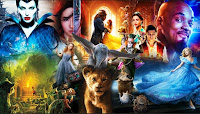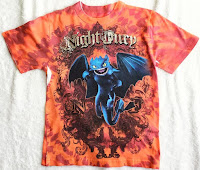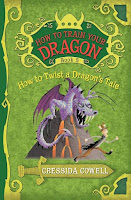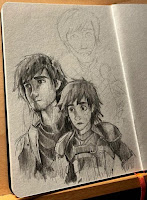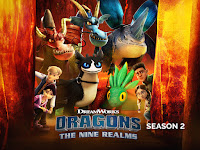Hi folks! Welcome to my My Own Personal Nerdy Disney and Animation Scrutinizing Analysis blog. A blog where I'm analyzing several Disney films, Disney or Animation in general! These entries are just meant to be my analyses. Not reviews or statements. Just fun analyses! Though I'll make some personal remarks now and then, the content of these entries are meant to be depicted objectively. They're made for entertainment purpose only and the pictures/clips are copyright Disney or other companies.
Make sure to leave a comment if you like this site! And if there's something you think could be improved, please let me know. But in a constructive way, please. And just a note; I'm not a Native English writer, so my incorrect grammar may be notable.
And finally; If you haven't seen the films, beware of spoilers! And the funny lines aren't meant to be nothing than funny. So I hope you won't find them offensive. If so, I apologize
 |
| We needed to have different colors, to diversify :) |

While Disney has always been divided through successful and less successful periods, the truth is that every studio has it`s Black Sheep. Most companies has a movie who`s universally loathed or has a bad reputation. But it`s hard to find a movie who`s gotten that reputation during Walt`s time, due to how his movies are essentially perceived as classics. During Walt`s time, it`s contradictory how most of the movies that followed Snow White and the Seven Dwarfs weren`t regarded as successful enough financially. Both Bambi and Fantasia received harsh criticism during their first releases, but were regarded as classics afterwards. However, Alice in Wonderland was considered to be a Black Sheep during the Second Golden Age, but got rid of that bad staple during the years.
 |
| And that`s why we`ll remind ya why you shouldn`t forget us :) |
 But The Sword in the Stone
was considered to be a minor Black Sheep through Walt`s time. But as for the following movies after Walt`s death, the truth is that
despite how the movies who followed were financially successful, neither The Aristocats or Robin Hood were perceived as classics by Disney historians. While The Rescuers was perceived as somewhat of a classic. The Fox and the Hound`s
position was more tangible, as it was credited by critics, but never
truly regarded as a classic. But the following movie would essentially
become the Black Sheep of the Black Era. A movie that would truly be
regarded as a Black Sheep in Disney`s history after Walt`s death. And that is none other
than The Black Cauldron.
But The Sword in the Stone
was considered to be a minor Black Sheep through Walt`s time. But as for the following movies after Walt`s death, the truth is that
despite how the movies who followed were financially successful, neither The Aristocats or Robin Hood were perceived as classics by Disney historians. While The Rescuers was perceived as somewhat of a classic. The Fox and the Hound`s
position was more tangible, as it was credited by critics, but never
truly regarded as a classic. But the following movie would essentially
become the Black Sheep of the Black Era. A movie that would truly be
regarded as a Black Sheep in Disney`s history after Walt`s death. And that is none other
than The Black Cauldron.General Information About The Black Cauldron
Released in July 1985, The Black Cauldron was directed by Ted Berman and Richard Rich (who had previously directed The Fox and the Hound and would later on direct The Swan Princess).
It`s loosely based on the first two books in The Chronicles of Prydain by Lloyd Alexander, a series of five novels based on Welsh mythology. It was the first Disney animated film to be recorded in Dolby Stereo. And the first film to receive a PG rating, as well as
the first to feature computer-generated imagery. It
was also the first feature produced by Silver Screen Partners II. It was also presented in Super Technirama 70, the first since Sleeping Beauty. Being the most expensive animated film ever made at the time, it was a box-office bomb,
grossing just $21.3 million against a budget of $44 million. Putting
the future of Disney's animation in jeopardy. Because of its failure, Disney didn`t release the film on home media until
1998, as enough fans requested it. It has since gained a cult following.

 Nigel Hawthorne (who voiced
Professor Porter in Tarzan) voiced Fflewddur. Animators
like Andreas Deja, Mark Henn (his first gig at Disney), Ruben Aquino, George Scribner Hendel
Butoy, Dale Baer, Ron Husband, Jay Jackson, Barry Temple, Kathy
Zielinski, Tony
Anselmo, Mauro Maressa and Mike Gabriel were
among the crew. Don Paul, Mark Dindal and Barry Temple were among the
effect animators. Don Griffith was the layout supervisor. Lisa Keene worked with the
background. Deja designed the characters. Don Hahn was the production
manager. Ron Miller was the executive producer. Art Stevens, Mel Shaw, John Musker, Ron Clements and Burny Mattinson worked on the story. Eric Larson was an animation consultant. Anthony DeRosa was a
breakdown artist. Kelly Asbury, Steve Hickner, Gary Trousdale, Dave Bossert and Rob Minkoff were
in-between artists. Howard E. Green was the publicist of the movie.
Nigel Hawthorne (who voiced
Professor Porter in Tarzan) voiced Fflewddur. Animators
like Andreas Deja, Mark Henn (his first gig at Disney), Ruben Aquino, George Scribner Hendel
Butoy, Dale Baer, Ron Husband, Jay Jackson, Barry Temple, Kathy
Zielinski, Tony
Anselmo, Mauro Maressa and Mike Gabriel were
among the crew. Don Paul, Mark Dindal and Barry Temple were among the
effect animators. Don Griffith was the layout supervisor. Lisa Keene worked with the
background. Deja designed the characters. Don Hahn was the production
manager. Ron Miller was the executive producer. Art Stevens, Mel Shaw, John Musker, Ron Clements and Burny Mattinson worked on the story. Eric Larson was an animation consultant. Anthony DeRosa was a
breakdown artist. Kelly Asbury, Steve Hickner, Gary Trousdale, Dave Bossert and Rob Minkoff were
in-between artists. Howard E. Green was the publicist of the movie. The Reception and Staple of The Black Cauldron

 |
| We`re not having a romantic gaze. We`re playing how to gazing without blinking :) |
 |
| We`re the odd trio. Don`t ask us why :) |
 As for it`s final ratings,
it`s not rated particularly highly on Imdb nor on Popcornmeter. But it still has
81% likes on Google. Which confirms that it has it`s fanbase after all. As for my personal opinion, I remember actually
buying the DVD when I was in my early twenties and seeing the movie.
Frankly, at the time I thought it was pretty meh, generic and
forgettable. But after seeing it again, I discovered that it had it`s
charms and perks. And frankly that it was better than I remembered. But Lloyd
Alexander had a
more complicated reaction to the film. He liked the movie, but found that there was little resemblance between the movie and the
book. As he thought the books had more depth. But while Cauldron is rarely promoted, the characters have made some appearances at the Disney Parks and Resorts in Fantasyland. And they`ve appeared in House of Mouse, during the episode House of Magic.
As for it`s final ratings,
it`s not rated particularly highly on Imdb nor on Popcornmeter. But it still has
81% likes on Google. Which confirms that it has it`s fanbase after all. As for my personal opinion, I remember actually
buying the DVD when I was in my early twenties and seeing the movie.
Frankly, at the time I thought it was pretty meh, generic and
forgettable. But after seeing it again, I discovered that it had it`s
charms and perks. And frankly that it was better than I remembered. But Lloyd
Alexander had a
more complicated reaction to the film. He liked the movie, but found that there was little resemblance between the movie and the
book. As he thought the books had more depth. But while Cauldron is rarely promoted, the characters have made some appearances at the Disney Parks and Resorts in Fantasyland. And they`ve appeared in House of Mouse, during the episode House of Magic.The Dark Tone of The Black Cauldron
 |
| Electricity. It`s gonna be big :) |
But regardless of it`s staple for being dismissed, The Black
Cauldron is also known for it`s sheer darkness. It`s known for being one of Disney`s darkest films. Sure, it wasn`t the only one to be dark, as the following Hunchback would`ve also been known for it`s darkness (and frankly, Sleeping Beauty had
it`s very dark moments). Sure, most of Walt`s early classics were known
for their darkness and even some of the following movies from the
Renaissance (as Beauty and the Beast and The Lion King). And let`s not forget our dear Frozen.
 |
| The black cauldron was missing at the moment :) |
But  Cauldron would`ve especifically been labeled for it. But it was essentially something that was perceived as a weakness by many. However, what perhaps makes
Cauldron would`ve especifically been labeled for it. But it was essentially something that was perceived as a weakness by many. However, what perhaps makes
 Cauldron would`ve especifically been labeled for it. But it was essentially something that was perceived as a weakness by many. However, what perhaps makes
Cauldron would`ve especifically been labeled for it. But it was essentially something that was perceived as a weakness by many. However, what perhaps makesCauldron even more distinctive
is that it doesn`t feel quite as Disney in tone. It`s not as fuzzy and
warm as Disney are usually known for and comes across like a feature from another studio, almost Don Bluth-esque. And yes, it has been compared to the animated Lord of the Rings from 1978 (which is a fair comparison).
The Disney Elements of The Black Cauldron
 |
| Well, at least it`s not fireflies :) |
 Due to it`s oppressively dark tone, many have labeled The Black Cauldron as a departure from Disney. But it`s still in the same fantasy realm as many of it`s predecessors. But Cauldron is still interesting enough for not being a musical, with no songs whatsoever. The first animated movie at Disney to be one. But what it has in common with some of Walt`s features is having a male youth as a protagonist, just like Peter Pan and The Sword in the Stone. And just like the former movie, also having Taran coming across as semi-arrogant and a brat at
the beginning (who also has an understated arc of his own). Taran also has a female counterpart, who`s an actual Princess (who`s never been included
among the official list of Princesses. Despite how she`s, to be fair, too young to be included). Who`s a blonde and a child (and yes, she was inspired by Princess Aurora from Sleeping Beauty).
And sure, while there`s essentially a hint of romance, it`s never fully developed.
Due to it`s oppressively dark tone, many have labeled The Black Cauldron as a departure from Disney. But it`s still in the same fantasy realm as many of it`s predecessors. But Cauldron is still interesting enough for not being a musical, with no songs whatsoever. The first animated movie at Disney to be one. But what it has in common with some of Walt`s features is having a male youth as a protagonist, just like Peter Pan and The Sword in the Stone. And just like the former movie, also having Taran coming across as semi-arrogant and a brat at
the beginning (who also has an understated arc of his own). Taran also has a female counterpart, who`s an actual Princess (who`s never been included
among the official list of Princesses. Despite how she`s, to be fair, too young to be included). Who`s a blonde and a child (and yes, she was inspired by Princess Aurora from Sleeping Beauty).
And sure, while there`s essentially a hint of romance, it`s never fully developed.  |
| Well, this is the fantasy verison of Arranged :) |
Behind the Scenes Information
 |
| I know that it`s rude to point, but my parents never taught me courtesy :) |
 Lenore Duckwall, wife of production manager Don
Duckwall, had read the books and suggested an adaptation to her
husband. Don showed the books to Wolfgang "Woolie" Reitherman,
who agreed to adapt the series. As Disney`s animated pictures weren`t appealing to
teenagers at that time, who were the bulk of the audience in theaters, They
wanted to make a PG-rated picture that would attract an older audience. Disney showed interest in 1971 and got the rights to the books in 1973. And Disney were excited about it (as was Don Bluth), as the new generation thought it could be the next Snow White and the Seven Drawfs. But since the stories were so elaborate, the crew worked on it through the whole decade. Veteran artist Mel
Shaw made preliminary pastel sketches, which Disney
president Miller found too advanced for the
new animators. And wanted them to hone their skills on less ambitious projects like Pete’s Dragon, The Small One, Hound and Mickey’s Christmas Carol. And as they weren`t able to animate realistic human
characters, was the reason why it was set for a Christmas 1984 release and Hound took it`s place.
Lenore Duckwall, wife of production manager Don
Duckwall, had read the books and suggested an adaptation to her
husband. Don showed the books to Wolfgang "Woolie" Reitherman,
who agreed to adapt the series. As Disney`s animated pictures weren`t appealing to
teenagers at that time, who were the bulk of the audience in theaters, They
wanted to make a PG-rated picture that would attract an older audience. Disney showed interest in 1971 and got the rights to the books in 1973. And Disney were excited about it (as was Don Bluth), as the new generation thought it could be the next Snow White and the Seven Drawfs. But since the stories were so elaborate, the crew worked on it through the whole decade. Veteran artist Mel
Shaw made preliminary pastel sketches, which Disney
president Miller found too advanced for the
new animators. And wanted them to hone their skills on less ambitious projects like Pete’s Dragon, The Small One, Hound and Mickey’s Christmas Carol. And as they weren`t able to animate realistic human
characters, was the reason why it was set for a Christmas 1984 release and Hound took it`s place.  |
| Well, this is what happens when you`re a girl in a man`s World :) |
 John Musker
was the film's initial director and assigned to expand scenes in the first act, but they were too funny. When Hound had wrapped, directors Art Stevens,
Richard Rich, Ted Berman, and Dave Michener became involved. But when too many people were involved, Miller decided Stevens
was not appropriate to guide Cauldron. Joe Hale wanted it to have a different look, but still having a typical Disney style. Which made production start going in 1980. He threw character artwork by Tim Burton and Andreas Deja, and along with Rich and Berman, wanting a Sleeping Beauty visual approach. Milt Kahl was brought out of retirement to create designs for the characters. Both Musker and Ron Clements were removed from the project for the changes. The Horned King`s role was expanded to a villain of many characters of the books.
John Musker
was the film's initial director and assigned to expand scenes in the first act, but they were too funny. When Hound had wrapped, directors Art Stevens,
Richard Rich, Ted Berman, and Dave Michener became involved. But when too many people were involved, Miller decided Stevens
was not appropriate to guide Cauldron. Joe Hale wanted it to have a different look, but still having a typical Disney style. Which made production start going in 1980. He threw character artwork by Tim Burton and Andreas Deja, and along with Rich and Berman, wanting a Sleeping Beauty visual approach. Milt Kahl was brought out of retirement to create designs for the characters. Both Musker and Ron Clements were removed from the project for the changes. The Horned King`s role was expanded to a villain of many characters of the books.  |
| These are the stages of evolution of darkness :) |
 But when production began, many felt that it was misguided. They found it too dark, without comedy. And therefore it lay in development and many lost
faith in the movie. Jeffrey Katzenberg ordered scenes to be cut, which messed with it`s continuity. As those scenes, like the climax, were too disturbing to
children at test screenings. Which delayed its release to 1985. Katzenberg thought it was possible to edit an animated movie. Eisner tried to stop him. But it was cut by twelve minutes, with some scenes rewritten and reanimated. While most scenes were seamlessly removed, the
Cauldron-Born scene has some lapses because the
removal made a jump in the
film's soundtrack. For last minute revisions, much of Bernstein's score was cut.
But when production began, many felt that it was misguided. They found it too dark, without comedy. And therefore it lay in development and many lost
faith in the movie. Jeffrey Katzenberg ordered scenes to be cut, which messed with it`s continuity. As those scenes, like the climax, were too disturbing to
children at test screenings. Which delayed its release to 1985. Katzenberg thought it was possible to edit an animated movie. Eisner tried to stop him. But it was cut by twelve minutes, with some scenes rewritten and reanimated. While most scenes were seamlessly removed, the
Cauldron-Born scene has some lapses because the
removal made a jump in the
film's soundtrack. For last minute revisions, much of Bernstein's score was cut.  |
| Don`t ask me what I`m looking into :) |
 And yes, according to both Eisner and Roy
Disney it was the most complicated movie made, but they would`ve worry about the story. Some
claim that Cauldron`s result was thanks to the lack of a clear directioral vision. But it was more successful outside North America, notably in Asia and France, where it was the fifth most viewed film that year. Disney wanted the Cauldron-Born sequence to have a holographic sequence that would bring the swordsmen to the theater. But it was scrapped for being too expensive. A 10-week animators' strike in 1982 delayed the movie even more. The director wanted to add songs to Cauldron, to reduce it`s darkness. Miller didn`t want the picture to run
over 80 minutes. Disney wanted to market it as a comedy. Henn worked on Fflewddur, the minstrel, as well as some Gurgi. Gary Burghoff of M*A*S*H tried
as Gurgi. He tried many voices, since Berman didn`t knew how he should
sound. But he was thrown out of the studio. Hayley Mills was considered
for Eilonwy.
And yes, according to both Eisner and Roy
Disney it was the most complicated movie made, but they would`ve worry about the story. Some
claim that Cauldron`s result was thanks to the lack of a clear directioral vision. But it was more successful outside North America, notably in Asia and France, where it was the fifth most viewed film that year. Disney wanted the Cauldron-Born sequence to have a holographic sequence that would bring the swordsmen to the theater. But it was scrapped for being too expensive. A 10-week animators' strike in 1982 delayed the movie even more. The director wanted to add songs to Cauldron, to reduce it`s darkness. Miller didn`t want the picture to run
over 80 minutes. Disney wanted to market it as a comedy. Henn worked on Fflewddur, the minstrel, as well as some Gurgi. Gary Burghoff of M*A*S*H tried
as Gurgi. He tried many voices, since Berman didn`t knew how he should
sound. But he was thrown out of the studio. Hayley Mills was considered
for Eilonwy. Epilogue
 |
| My cute and innocent look is deceiving :) |
At the end, The Black Cauldron is essentially stuck with it`s semi dud-staple. And truth to be told, it would be fair to say that it will most likely never get past that staple. And therefore it`s really hard to even conclude it for that reason. But despite how it`s fanbase is questionable, it`s still nice that it has it`s small fanbase, after all. As for what I consider to be it`s strengths, I do find it to be engaging, charming and evocative, despite how it`s perhaps not the very best Disney has done. The animation, while not being the very best, is still good enough and the facial expressions are well done.
 |
| We hate being stuffed. For obvious reasons. Duuuh :) |
 The
score is good and the characters are fine enough. The story is
straightforward enough, but still fine enough on it`s own terms. However, the
gripes that I had with it is how the three witches were annoying and the same could be said about the comedy. But since this entry was meant to synergize with it`s 40th
Anniversary (yes, it`s hard to believe that it`s been that long), there`s nothing left
to wish The Black Cauldron Happy 40th Anniversary and may you continue to have many more.
The
score is good and the characters are fine enough. The story is
straightforward enough, but still fine enough on it`s own terms. However, the
gripes that I had with it is how the three witches were annoying and the same could be said about the comedy. But since this entry was meant to synergize with it`s 40th
Anniversary (yes, it`s hard to believe that it`s been that long), there`s nothing left
to wish The Black Cauldron Happy 40th Anniversary and may you continue to have many more.Follow my updates on https://www.facebook.com/profile.php?id=100035703494050 and https://twitter.com/NerdyLunada.
References:
Disney`s Art of Animation: From Mickey Mouse to Hercules (Bob Thomas)
The Art of Walt Disney: From Mickey Mouse to the Magic Kingdoms (Christopher Finch)
Waking Sleeping Beauty









